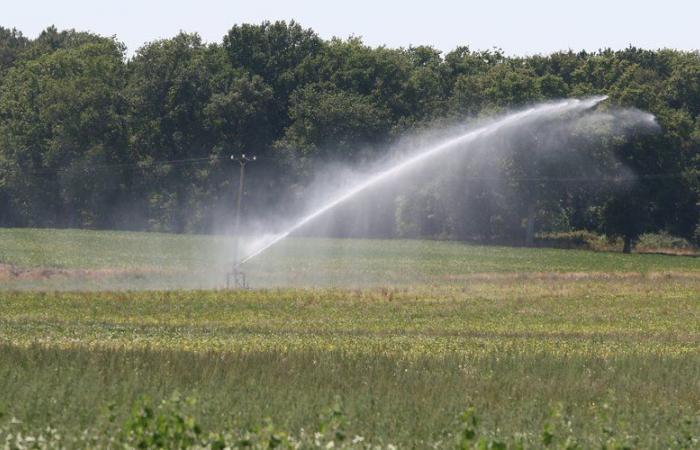
essential
Soy, pillar of vegetable proteins, is found in turmoil after the ANSES sanitary alert. In the Gers, the first production pool, farmers and processors denounce a risk of disinformation.
A recent ANSES report (National Food Safety Agency) on soy consumption is far from having made people happy in the sector. And for good reason, the first lines are murdered for all those who work from near or far legume.
“The isoflavones naturally present in certain plants can have harmful effects on health, especially on the reproductive system, if they are consumed in too large quantities. Soy is the main source of isoflavones, ANSES recommends not to serve as soy -based food in collective catering to avoid overconsumption.”
A few days after the publication of this report, the Toulouse town hall announced to withdraw any soy -based food in the meals served by the central kitchen in public schools, senior municipal restaurants. Just like the Tarn department for its school restaurants.
Read also:
The Toulouse town hall has decided to “withdraw any soy -based food from meals served” in school canteens and senior restaurants
A decision that challenges in the Gers, the first soy producer department in France, with 9,000 hectares in 2024, more than half of organic. But still with cultivated surfaces slightly decrease each year.
“ANSES, in fact, recommended a dose of soybeans not to exceed, a rate of 0.02 mg per kg of body weight and per day for the general population. We are not going to eat every day from cold meats, pasta, pizzas, burgers or other. With soybeans, it’s the same”, annoys a producer of Gersois soy.
“The soybean contains isoflavone. But like all legumes. The Toulouse decision is a bad message sent. The soy is the cheapest protein on the market. So, if you want to replace soy, alternatives remain limited: there are the lentils or chickpeas, which we produce in the Gers, but the price is not the same. ? They have the obligation to respect certain balances in collective catering.
-Concern at all floors
Jean Berjou is an organic farmer installed in Fourcès. Since 2016, he has also been an organization Stoistur, under the organic Progress entity. He also works with the agrifood company Le Sojami, based in Agen, a company dedicated to the manufacture of plant foods, with the basic raw material of organic soybeans.
Read also:
The excess of soybeans for health? 5 questions to understand why health authorities want to withdraw it from collective catering
“The soy produced here contains a small quantity of isoflavones. You have to inform, yes, but without disinforming. Simply” it is not good “without contextualizing, it induces people in it. If you really want to get closer to the population, inform them, accompany it, why not clearly assess the products, with a scale of 1 to 10? Where would this local soy be, even if it contains a little isoflavones? Perhaps around 2 out of 10, which remains well below many imported or processed products, “considers this producer.
Soy -based products do not all contain the same content of isoflavones. The foods most concentrated in isoflavones are soy -based aperitif cookies, but also smoked and natural tofu, soy -based pancakes or vegetable sausages with tofu.
Transformers are also worried after this report and fear seeing consumption drop. This is the case of this manager of a Haut-Garonnaise company, which is supplied in soybeans by Gers producers.
Read also:
Endocrine disruptors: soy soon withdrawn from school canteens?
“ANSES is 10 years late on the program of this opinion. And rather than taking into account the whole scientific bibliography that has existed since 2008, they have released something in their own way that does not mean anything and is based on any scientific research,” he is carried away in turn.
“It is a shame, because from a nutritional point of view, soybeans, it is the most interesting plant for human food. There are people who work on the ground and who need to put the Sojas in rotation to maintain the balance of the soil. Sojas like beans are plants that regenerate the soil. So, especially in organic farming, these are essential, essential cultures. Years on the effects of isoflavones and on reduction methods.





